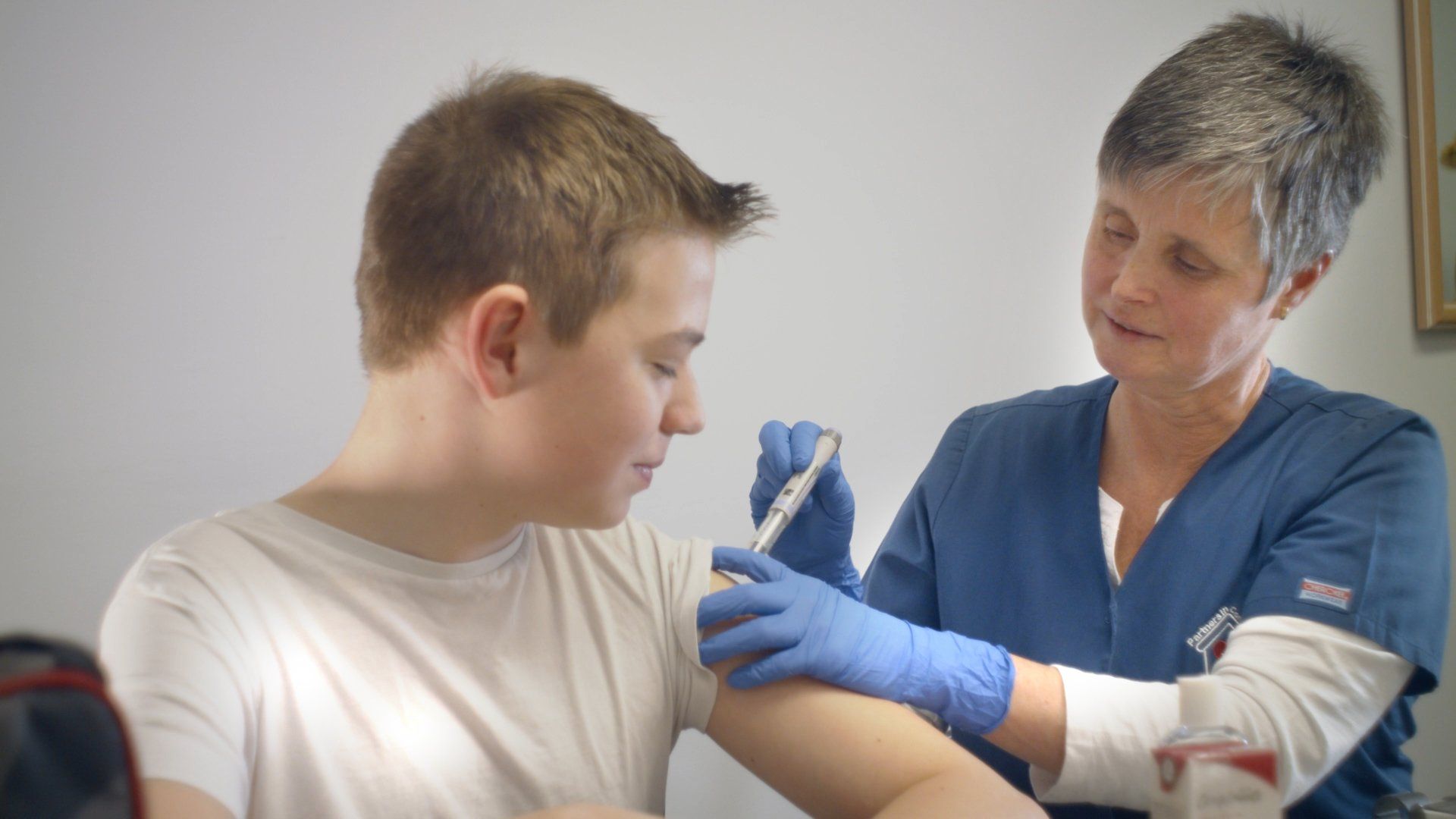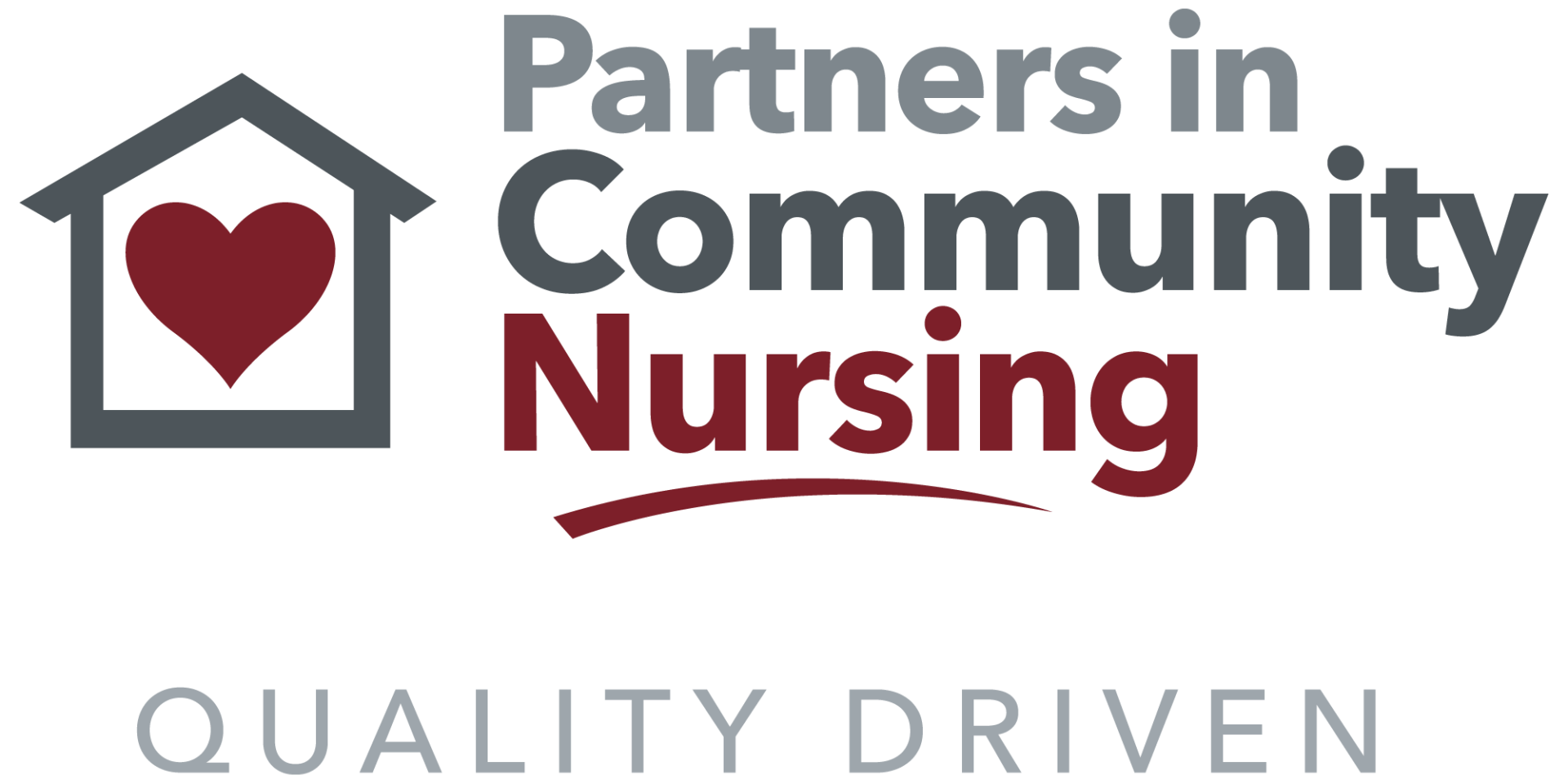Compassionate Palliative Care Support When Families Need It Most
Bringing Dignity, Comfort, and Peace of Mind Home Across Durham Region
Across Durham Region, families facing serious illness find comfort in familiar surroundings. PICN visiting nurses bring palliative care expertise directly to homes, ensuring specialized support where families feel most comfortable.
This is the reality of community palliative care—transforming how families experience serious illness by focusing on comfort, quality of life, and preserving precious moments together. Partners in Community Nursing has been providing this essential visiting nursing service across Durham Region for over 27 years, understanding that when families face life-threatening illnesses, they need more than medical expertise—they need a circle of care that honors their values, respects their choices, and supports them through every step of the journey.
The Critical Need for Palliative Care in Durham Region
Ontario's healthcare landscape continues to face unprecedented challenges. The province has one of the lowest nurse-to-population ratios in Canada, making specialized services like palliative care increasingly precious. Many families express a preference for receiving end-of-life care at home when given the option, yet access to qualified palliative nursing remains limited across many communities.
In Durham Region, where hospital units face significant staffing challenges, PICN's community-based palliative care visiting program fills a critical gap. Our visiting nurses, trained in Comprehensive Advanced Hospice Palliative Care Education (CAPCE), ensure that clients with life-threatening illnesses can remain in the comfort of their homes, surrounded by family, familiar surroundings, and the routines that bring them peace.
Understanding PICN's Palliative Care: Visiting Nurses Making the Difference
PICN's palliative care is provided specifically to any client or family diagnosed with a life-threatening illness with the aim to relieve suffering and improve quality of living and dying. Our visiting nurses work closely with clients and their families to address physical, psychological, spiritual, and social issues, helping them navigate their hopes and fears during this challenging time.
What PICN's Visiting Nurse Palliative Care Encompasses
Pain Management and Symptom Control
- Close collaboration with physicians to obtain optimal pain control
- Management of nausea, vomiting, constipation, and shortness of breath
- Wound care and skin integrity maintenance when needed
- Detailed assessment and monitoring of pain levels
Family Education and Empowerment
- Teaching family members about medications and comfort measures
- Guidance on what to expect during illness progression
- 24-hour telephone support for questions and concerns
- Connection to community resources and support services
Comprehensive Care Coordination
- Assessment of overall health status and care needs
- Communication with healthcare team members and specialists
- Documentation and care plan updates as conditions change
- Advocacy for client and family preferences during difficult decisions
How PICN's Visiting Nurses Support Durham Region Families
"I wish I had done community sooner. It is absolutely fantastic," shares Sarah Winter, Visiting Nurse and Clinical Resource Lead. She emphasizes the collaborative nature of community nursing: "You're by yourself, but at the touch of a button you can call the office. You're not alone." This support system ensures families receive expert palliative care with professional backup when needed across Durham Region.
Addressing Common Family Concerns About Palliative Care
Many families hesitate to consider palliative care due to misconceptions. PICN's visiting nurses address these concerns with compassion and accurate information.
"Does palliative care mean we're giving up hope?"
Absolutely not. Palliative care focuses on improving quality of life and can be provided alongside curative treatments. Many PICN clients continue receiving treatments aimed at managing their condition while also benefiting from comfort-focused interventions. The goal is ensuring the best possible quality of life, regardless of prognosis.
"Will palliative care speed up death?"
Research consistently shows that quality palliative care often extends life by improving overall health, preventing complications, and reducing stress on the body. PICN's approach emphasizes comfort and symptom management that supports the body's natural healing processes.
"What if we need emergency help?"
PICN provides 24-hour telephone support for all palliative care families. Our nurses work closely with local emergency services and hospital partners across Durham Region, ensuring seamless care coordination when urgent needs arise. Many potential crises can be prevented through proper education and early intervention.
"How do we coordinate with our doctor?"
PICN's visiting nurses work closely with physicians to obtain optimal pain control and manage other symptoms. We maintain regular communication with your healthcare team and provide detailed reports on your condition and response to treatments.
Hospital vs. Community Palliative Care: Understanding the Differences
Hospital Palliative Care
PICN Community Palliative Care
Environment
Clinical setting with medical equipment readily available
Familiar home environment with personalized surroundings
Nursing Approach
Multiple nurses providing care in shifts
Consistent visiting nurse building ongoing relationships
Family Involvement
Visiting hours and structured routines
Family involved in all aspects of care planning and delivery
Medication Management
Immediate access to IV medications and interventions
Focus on oral medications and comfort measures manageable at home
Cost Structure
Covered under hospital services
Funded through OHatH with private pay options for additional services
Crisis Management
Immediate medical team response
24-hour telephone support with emergency protocols
Both settings play important roles in comprehensive palliative care. PICN's visiting nurses often work collaboratively with hospital teams to ensure smooth transitions and continued care coordination.
Accessing PICN's Palliative Care Services
If you or a loved one has been diagnosed with a life-threatening illness and would benefit from palliative care support, contact PICN directly to discuss available options and funding sources.
Training and Expertise: What Sets PICN Apart
PICN's commitment to excellence in palliative care includes specialized training for our nursing team. We have palliative care nurses prepared with Comprehensive Advanced Hospice Palliative Care Education (CAPCE), ensuring specialized knowledge is available for end-of-life care when families need it most.
Specialized Training Components
Advanced Pain Assessment: Sophisticated techniques for evaluating pain in clients who may have difficulty communicating, including behavioral indicators and physiological markers.
Family-Centered Communication: Strategies for discussing difficult topics with clients and families, including cultural sensitivity training.
Symptom Management Protocols: Evidence-based approaches to managing complex symptoms including respiratory distress, nausea, constipation, and anxiety.
Crisis Prevention and Management: Recognition of potential complications and implementation of preventive strategies to avoid emergency situations.
Supporting Families Beyond Medical Care
PICN's visiting nurses understand that palliative care extends far beyond medical management. Families facing serious illness need emotional support, practical guidance, and help navigating complex healthcare systems.
Family Education and Empowerment
Our visiting nurses spend significant time teaching family members how to:
- Recognize changes in condition that require professional attention
- Administer medications safely and effectively
- Provide comfort measures between nursing visits
- Access community resources and support services
- Communicate effectively with healthcare providers
Taking the Next Step: Accessing PICN's Palliative Care Services
If you or a loved one has been diagnosed with a life-threatening illness and would benefit from palliative care support, PICN's visiting nurses are here to help.
How to Get Started
Contact PICN Directly: Call 905-665-1711 to discuss your needs and learn about available services. Our staff can explain the referral process and answer questions about what to expect.
Through Your Physician: Ask your family doctor or specialist about referring you to PICN for palliative care services. They can coordinate with our nursing team to ensure seamless care transitions.
Via OHatH: Ontario Health at Home at 1-800-263-3877 to request an assessment for palliative care services in your area.
What to Expect
Your first visit will include a comprehensive assessment of your condition, current medications, family support system, and care goals. Our visiting nurse will work with you to develop a personalized care plan that addresses your specific needs and preferences while coordinating with your existing healthcare team.
Contact Information:
- Phone: 905-665-1711
- Toll-free: 1-800-564-9534
- Address: 1001 Burns St E, Whitby, ON L1N 6A6
- Website: picn.ca/careers



